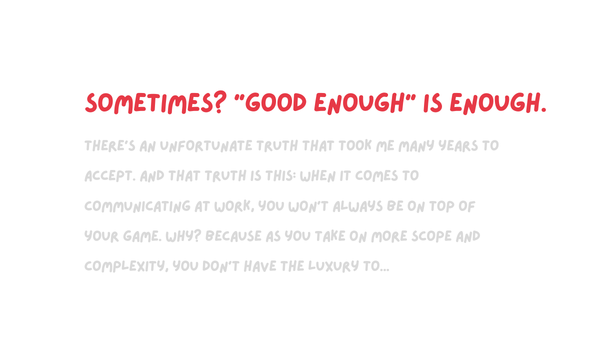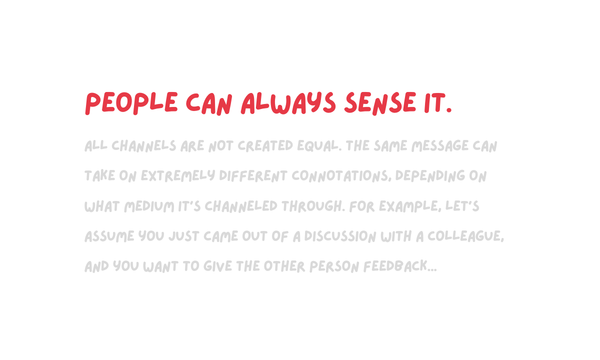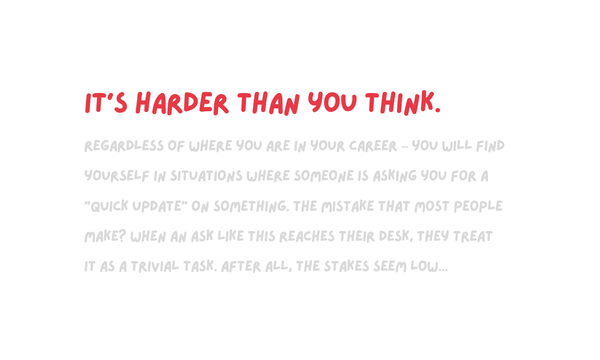✏️ I wrote on the internet for a month. Here are the life lessons I learned.

I wrote on the internet for a month. Here are the (unexpected) life lessons I've learned so far...
💡 Drop your ego and your baggage.
The scary thing about writing online is that you think everyone in your life (and their grandmothers) will see it. And then people will judge you behind your back
But as Ali Abdaal put it: No one cares. People are too busy with their lives. No one is snickering about you behind your back – ain’t nobody got time for that.
The same principle holds in life: just do what you’re passionate about, and keep at it.
So stop worrying about what other people will say or think about you – you occupy much less mindspace in other people’s lives than you think.
💡 You are not the main character.
Everybody loves talking about themselves. I like writing because it allows me to do that too. Plain and simple.
But Nicolas Cole has made me realize the need to flip this around. The reader is the main character. You want to lead with value, and ensure it’s a good use of time for your audience.
The same principle applies at work. If you see yourself as the main character, you will optimize for sounding smart and looking good. You will shy away from messy debate, challenges, and opportunities to fail forward.
But you are not the main character. Helping your team deliver outcomes is the main character. Your personal growth is also the main character.
Lead with value, and not your own ego.
💡 Don’t let perfection get in the way of progress.
Writing consistently entails two things: exercising discipline and making trade-offs.
At first glance, discipline is straightforward: you simply need to carve out the time and the energy to think and write.
But discipline is more than just that. What’s equally critical is the discipline of not letting perfection get in the way of progress.
This means telling yourself that not everything will be your magnum opus.
No more burning of the midnight oil in pursuit of the perfect prose. And no need for five rounds of revisions before something goes live.
But that is OK. There's no need to aim for perfection all the time.
Just be a little less imperfect each day.
💡 Don’t chase vanity metrics.
It’s easy to get caught up in the numbers. Impressions, reach, engagement, shares, retweets… the list goes on.
It’s hard not to care. But if you care too much, you end up playing a very different game.
And you’ll lose motivation as soon as you stop getting that instant gratification.
Someone at work once told me: “Don’t chase vanity metrics.” It has been one of the best pieces of advice I’ve ever heard.
It’s natural to fixate on things like job titles, levels, salaries, or team size. It’s very easy to fall into that trap. And it’s gratifying until it isn’t.
But that’s not the game you want to play. It can be a byproduct – but it should never be the game itself.


